Search Results
Search
Filter results
Advanced Filters
Your search returned 883 Solutions
-
Online community puts competitive pressure on online services to be more accessible
A11yID is an online community of digital product developers and people with disabilities, initiated by the NGO Suarise in Indonesia. In addition to providing exchanges on the topic of digital accessibility, reviews of websites, apps, and more are shared under the Hashtag TantanganAksesibilitas.
Suarise, A11yID, Indonesia -
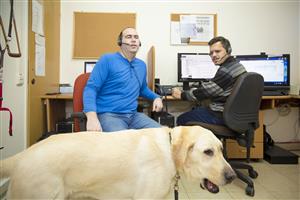
Free technology-support helpline for
persons who are blind or visually impaired
Clients at home, school, or work can contact the helpline via their smartphone, computer, or tablet. In this way they receive real-time instructions, primarily via phone, five days a week, addressing questions in four languages. The tech-support staff includes a manager and five specialists who are themselves blind or visually-impaired.
Migdal Or Rehabilition Center for the Blind, Israel -
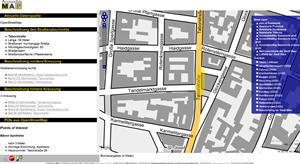
AccessibleMaps are 'talking city maps' offering geographic information online and on mobile phone to persons with visual impairments. The description of the city environment is read out loud by a synthetic voice.
The spoken description of the map gives an idea of what a street looks like, how long it is, and what infrastructure, shops, and parks are nearby. The tool can be used to prepare for an upcoming trip or, via the mobile application, to get detailed information about one's surroundings while walking through the city.
CEIT ALANOVA - Central European Institute of Technology, City maps, read out loud, Austria -
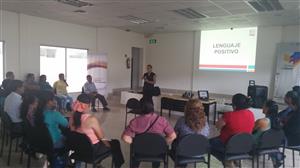
All-Sector-Cooperation creating jobs in thousands of companies
The Ecuadorian Labour Integration Service (SIL) promotes the inclusion of people with disabilities in the open labour market through training and assistance and by working together with the entire socio-labour spectrum. By 2016, some 12,900 people had found a job in 8,355 public and private companies.
FENEDIF - National Federation of Ecuadorian with Physical Disability, Labour Integration Service (SIL) of 2006 National Federation of Ecuadorians with Physical Disabilities (FENEDIF), in partnership with CONADIS, Petroamazonas EP and others, Ecuador, Ecuador -
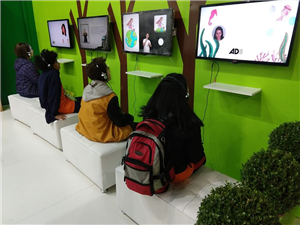
Audio-visual books in multiple accessible formats
"Livros em múltiplos formatos acessíveis" is an audio-visual software that converts books into a range of accessible formats, including Brazilian sign language, in a single version. Complementing this, the NGO Mais Diferenças from Brazil offers training and organizes inclusive readings for people with and without disabilities.
Mais Diferencas - Inclusive Education and Culture, Books in multiple accessible formats, Brazil -
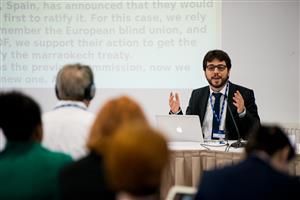
Transatlantic e-Accessibility standards cooperation
In 2004 the United States and the European Union initiated a process to harmonize the standardisation of ICT accessibility requirements. This cooperation resulted in largely compatible standards, that can create enormous leverage for accessible technologies and possibly lay the groundwork for an international standard.
United States Access Board, Mandate 376; European Standard on e-Accessibility EN 301 549 of 2014 of the European Commission, European Union Proposed rule for 508 Standards and the 255 Guidelines of 2015 of the U.S. Access Board, USA, United States of America -
Online platform on community-based services
Through an online database the project brings together – and shares information among – existing and new community-based service providers in Serbia for young people with disabilities in three areas: education, employment, and social protection. In 2015 the project’s web portal was visited by up to 1,000 persons per month.
Youth with Disabilities Forum Serbia, Serbia -
People with intellectual disabilities train peers to use digital media and ICT
PIKSL Mobil is a peer-to-peer teaching approach. People with intellectual disabilities are trained in the use of digital technology and in training other people. Equipped with technical equipment, these trainers then teach other persons with disabilities and seniors living in residential facilities to use digital media independently.
PIKSL - Living in the community gGmbH, PIKSL Mobil, Germany -
Ensuring equal access for Members of Parliament
South Africa has implemented steps that ensure the inclusiveness of its Parliament. The introduced policies contain support measures for Members of Parliament and employees with disabilities. The provision of reasonable accommodation has led to measures that go beyond individual support and that benefit the whole Parliament.
South African Parliament, POLICY ON FACILITIES FOR MEMBERS WITH SPECIAL NEEDS & POLICY ON REASONABLE ACCOMMODATION FOR EMPLOYEES WITH DISABILITIES, South Africa -
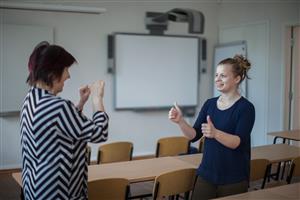
Access to higher education in Estonia
By providing training for entrants, study and career counselling, and scholarships, Estonia’s Primus Programme has successfully acted as a real door-opener for numerous students with disabilities. The programme was funded by the European Social Fund and ended in 2015, but many measures continue to be implemented.
Estonian Ministry of Education, Higher Education Department, Primus Programme, 2008-2015 by the Ministry of Education and Research, Archimedes Foundation and partners, Estonia, Estonia
- Page 1
- Page 2
- Page 3
- Page 4
- Page 5
- Page 6
- Page 7
- Page 8
- Page 9
- Page 10
- Page 11
- Page 12
- Page 13
- Page 14
- Page 15
- Page 16
- Page 17
- Page 18
- Page 19
- Page 20
- Page 21
- Page 22
- Page 23
- Page 24
- Page 25
- Page 26
- Page 27
- Page 28
- Page 29
- Page 30
- Page 31
- Page 32
- Page 33
- Page 34
- Page 35
- Page 36
- Page 37
- Page 38
- Page 39
- Page 40
- Page 41
- Page 42
- Page 43
- Page 44
- Page 45
- Page 46
- Page 47
- Page 48
- Page 49
- Page 50
- Page 51
- Page 52
- Page 53
- Page 54
- Page 55
- Page 56
- Page 57
- Page 58
- Page 59
- Page 60
- Page 61
- Page 62
- Page 63
- Page 64
- Page 65
- Page 66
- Page 67
- Page 68
- Page 69
- Page 70
- Page 71
- Page 72
- Page 73
- Page 74
- Page 75
- Page 76
- Page 77
- Page 78
- Page 79
- Page 80
- Page 81
- Page 82
- Page 83
- Page 84
- Page 85
- Page 86
- Page 87
- Page 88
- Page 89